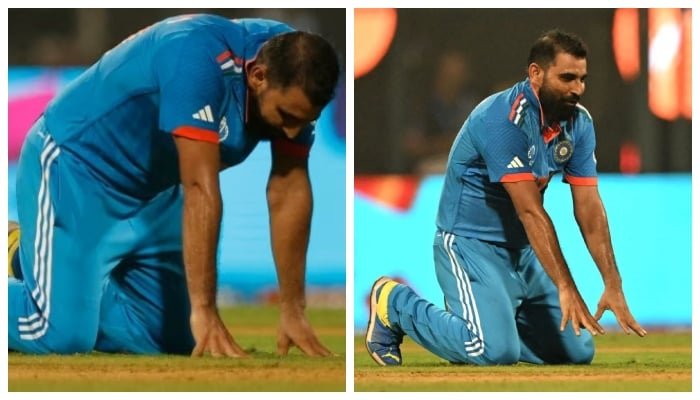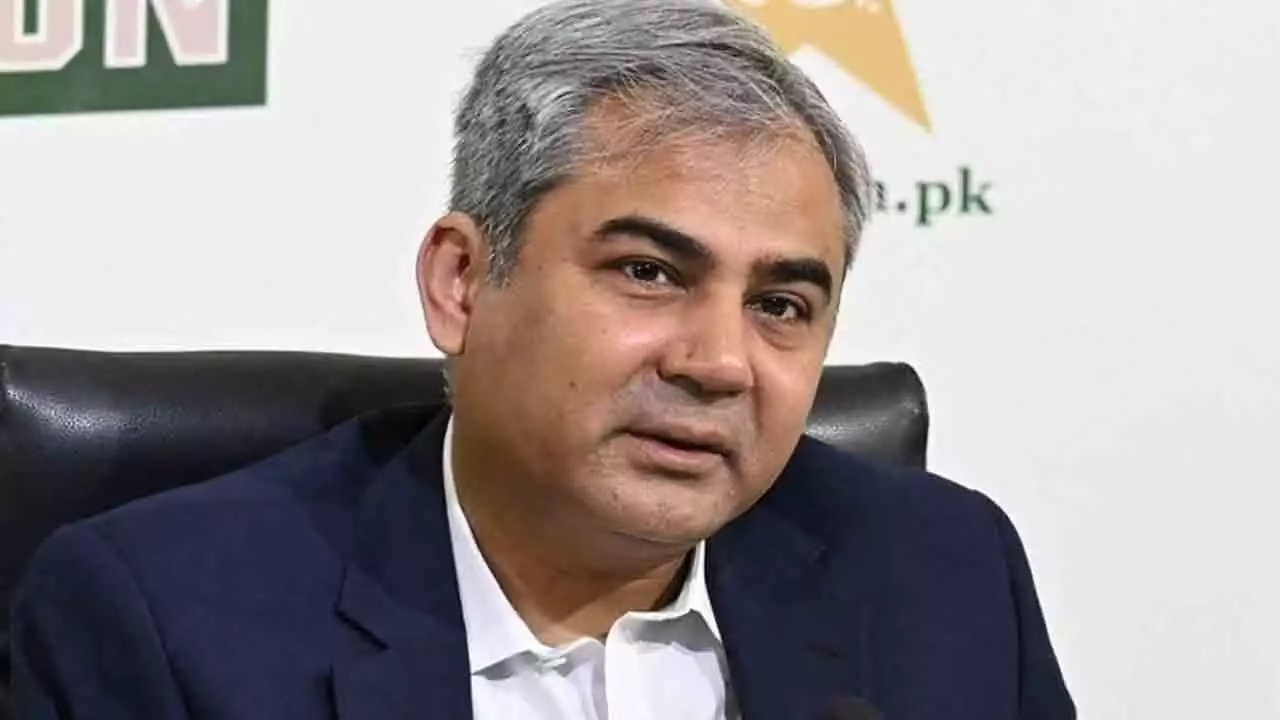In a remarkable display of sportsmanship and individuality, Indian fast bowler Mohammed Shami found himself at the center of attention during the ICC Cricket World Cup 2023. Shami’s unconventional celebration during the match against Sri Lanka raised eyebrows and triggered discussions both on and off the field.
During the crucial encounter where India secured a significant victory by defending a total of 302 runs, Shami played a pivotal role by claiming five wickets in just five overs, conceding a mere 18 runs. His stellar performance not only contributed to India’s triumph but also marked him as the highest wicket-taker in the ICC World Cup 2023 tournament.
What caught everyone’s attention, however, was Shami’s post-wicket celebration. Upon taking his fifth wicket, he initially attempted to bow down in prostration but restrained himself. The video of Shami’s aborted attempt at a celebratory Sajdah (Islamic act of bowing in prayer) quickly went viral on social media, prompting diverse reactions from cricket enthusiasts and fans.
As the video circulated, speculations and opinions arose regarding Shami’s decision to refrain from completing the Sajdah. Some applauded his respect for diverse beliefs, while others questioned the underlying reasons for the hesitation.
Addressing the controversy, Shami, in an interview with Indian journalist Vikrant Gupta, asserted, “I take pride in being a Muslim and an Indian. If I wanted to perform Sajdah, no one could have stopped me.” He clarified that he had never performed a Sajdah after taking five wickets before and emphasized that if he desired to do so, he would have, without any hindrance.
Shami further expressed his willingness to embrace his religious practices openly, stating, “If I wanted to perform Sajdah, I could do it anywhere in India without seeking permission from anyone.” His response conveyed a strong sense of conviction about his identity as both a Muslim and an Indian.
The incident not only showcased Shami’s commitment to his faith but also raised broader discussions about the intersection of religious expression and the sporting arena. The cricketer’s statement underscored the importance of individual freedom and the coexistence of diverse cultural and religious identities within the Indian context.
Mohammed Shami’s unique celebration added a layer of complexity to the ongoing conversations about religion, nationalism, and personal expression in the world of cricket, leaving fans and analysts reflecting on the significance of such moments in the broader landscape of sportsmanship.



